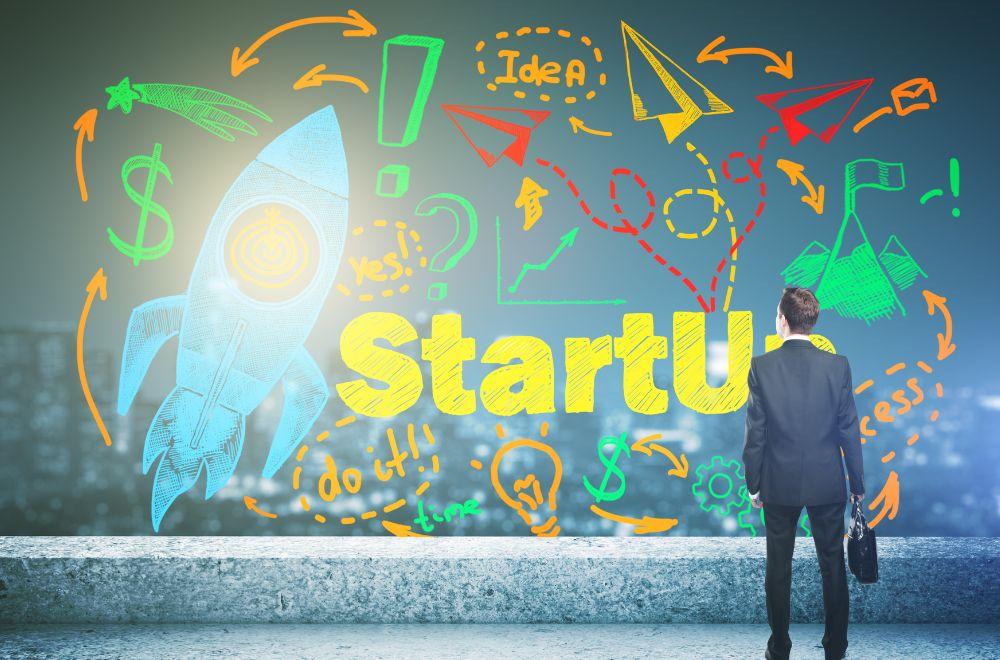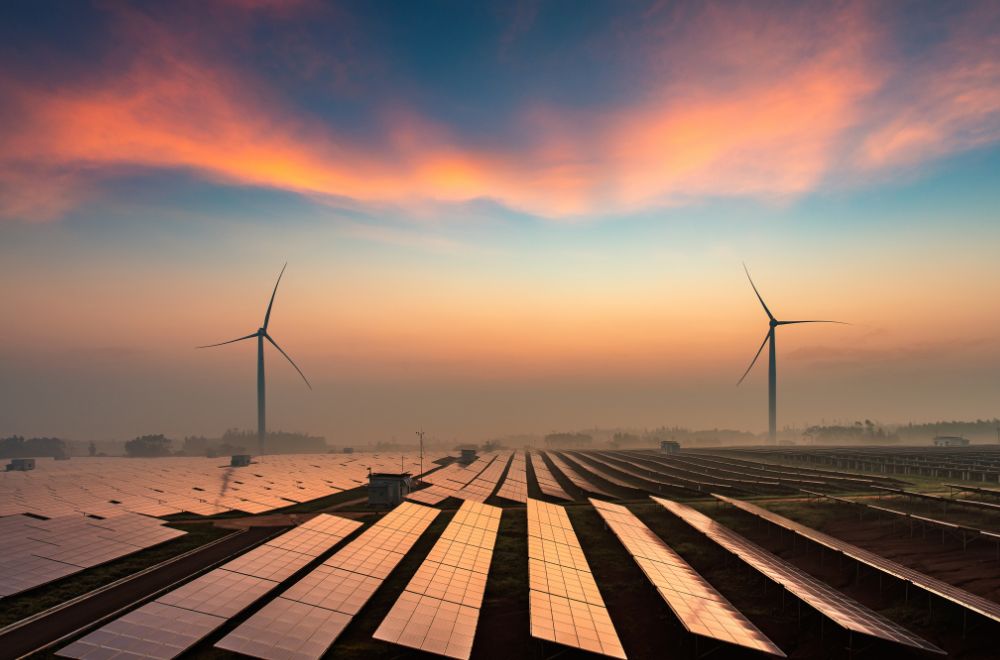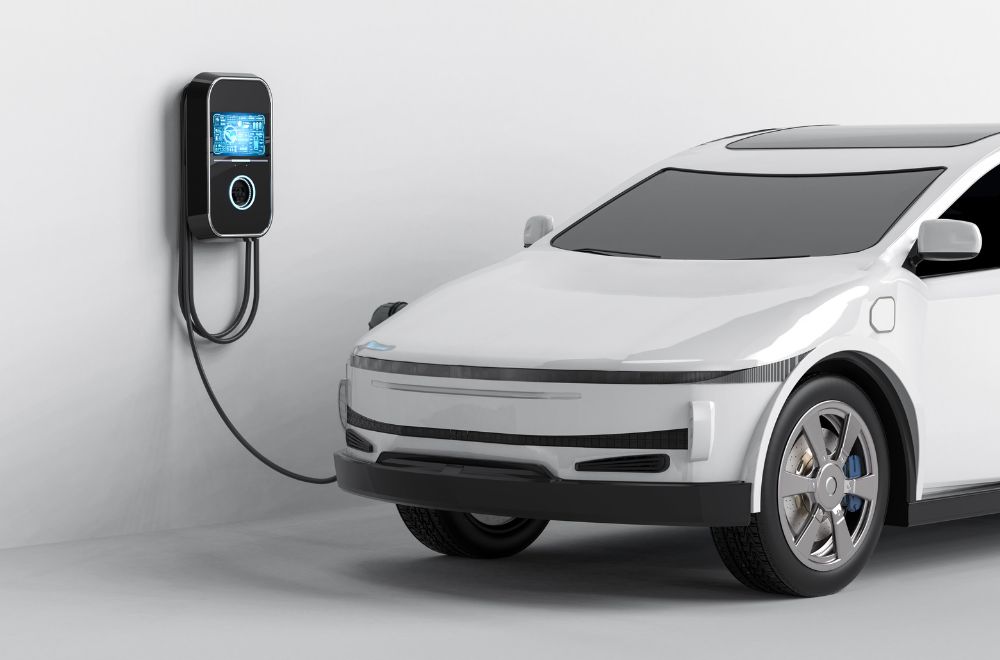Startup ideas in Dubai are flourishing as the city positions itself as a global hub for innovation and technology. With a focus on smart city solutions, health and wellness advancements, sustainable energy ventures, and educational technologies, Dubai offers a fertile ground for entrepreneurs like you and me. The Smart Dubai Initiative is driving IoT integration into urban infrastructure, enhancing efficiency and sustainability.
Meanwhile, the health sector is ripe for growth, with telehealth platforms and fitness tech leading the charge. Sustainable energy solutions like solar innovations and waste-to-energy technologies align with the UAE’s net-zero goals. Furthermore, the educational landscape is evolving with gamified learning platforms and virtual classrooms, preparing the youth for future challenges.
As Dubai continues to invest in digital transformation, startups have unique opportunities to innovate and contribute to the city’s dynamic market.
Smart City and IoT Solutions
Connected Infrastructure and Smart Buildings
The integration of IoT technologies into urban infrastructure is transforming cities into smart environments. This transformation is driven by IoT’s ability to collect and analyse data from various sources, enhancing the efficiency and sustainability of urban operations. In terms of Dubai’s technologies, the Smart Dubai Initiative has been pivotal in embedding advanced technologies into the city’s fabric, significantly improving infrastructure management.
Smart buildings equipped with IoT sensors optimise energy consumption, reduce emissions, and streamline maintenance processes. These innovations contribute to environmental sustainability and enhance residents’ quality of life by ensuring more efficient and responsive urban services.
Mobility and Autonomous Transport Solutions
Dubai is at the forefront of revolutionising urban mobility by adopting smart and autonomous transport solutions.
The UAE’s commitment to achieving Net Zero by 2050 is driving investments in low-carbon transport technologies.
Initiatives such as the SAVI cluster are transforming the landscape of smart vehicles across air, land, and sea.
Notable innovations include the development of hyperloops, which aim to reduce travel times between Dubai and Abu Dhabi drastically, and the trial of autonomous ferries by the Dubai Roads and Transport Authority.
These advancements are part of a broader strategy to make a significant portion of journeys in Dubai self-driving by 2030, enhancing efficiency and reducing carbon emissions.
IoT for Enhanced Public Safety
IoT applications are required to enhance public safety within smart cities. By integrating advanced technologies into urban safety infrastructures, cities like Dubai can significantly improve emergency response times and overall public security. IoT sensors deployed across urban areas enable real-time monitoring of environmental conditions, such as air and water quality, and can detect potential hazards or pollutants.
This proactive approach to public safety ensures that cities can respond swiftly to emergencies, safeguarding the well-being of residents. Smart city IoT solutions also facilitate efficient waste management and traffic control, further contributing to a safer and more sustainable urban environment.
Smart Home Technologies
The rise of smart home technologies is a key component of the smart city ecosystem. In Dubai, adopting IoT-enabled devices in homes enhances residents’ convenience, security, and energy efficiency. Smart home systems allow for the automation of various household functions, such as lighting, heating, and security, providing homeowners with greater control and peace of mind.
These technologies also contribute to energy conservation by optimising the use of resources, aligning with the broader goals of sustainability and efficiency within the smart city framework. As Dubai continues to embrace digital transformation, the integration of smart home technologies is set to play an increasingly important role in shaping the future of urban living.
Health and Wellness Startups
Dubai’s health and wellness sector is set for substantial expansion, driven by technological innovations and strong governmental support for digital health initiatives. As the city embraces these advancements, startups in this field have a unique opportunity to serve a tech-savvy population seeking convenient healthcare solutions.
Telehealth Platforms
Telehealth platforms are leading this transformation by addressing the growing demand for accessible healthcare services. The UAE’s telehealth market is rapidly evolving, bolstered by the widespread use of smartphones and internet connectivity. Government initiatives promoting telemedicine are further alleviating the burden on traditional healthcare systems.
By facilitating remote consultations, these platforms minimise the necessity for in-person visits, thereby reducing hospital stays and associated expenses. This is especially advantageous for individuals with chronic illnesses or mobility challenges, allowing them to manage their health more effectively from home.
Fitness Tech and Wearables
Dubai’s digital fitness and wellness market is also witnessing significant growth, with fitness technology and wearables playing a crucial role. Devices such as fitness trackers and health monitoring wearables enable users to monitor their physical activities and health metrics in real time. The ability to access personalised workout recommendations and health insights on the go has contributed to the rising popularity of these technologies.
The market is anticipated to continue expanding, driven by increasing disposable incomes and a heightened focus on personal health, particularly in the aftermath of the COVID-19 pandemic. As consumers increasingly seek digital solutions for fitness, startups in this sector have a promising opportunity to innovate and attract a growing user base.
Mental Health Apps
Recognising mental health as a vital aspect of overall well-being, digital solutions are emerging to meet this need. Mental health applications provide users with tools to manage stress, anxiety, and other challenges through accessible platforms. These apps offer a variety of services, including guided meditation, mindfulness exercises, and virtual therapy sessions, making mental health support more readily available.
As awareness of mental health issues continues to rise, so does the demand for innovative solutions that can be seamlessly integrated into daily life. Startups focusing on mental health applications can capitalise on this trend to create products that cater to a diverse audience seeking effective support.
Personalised Nutrition Services
Personalised nutrition services represent another promising area for innovation within Dubai’s health and wellness landscape. With an increasing focus on preventive healthcare, consumers are showing greater interest in tailored dietary solutions that meet their specific health needs. Startups can take advantage of this trend by offering services that utilise data-driven insights to develop customised nutrition plans.
These offerings can assist individuals in proactively managing their health by addressing unique dietary requirements and health objectives. As the market for personalised health solutions grows, there is a significant opportunity for startups to create platforms that merge technology with nutrition expertise to provide effective dietary guidance.
Sustainable Energy Ventures
The sustainable energy landscape in Dubai is rapidly evolving, driven by innovative startup ideas that align with the UAE’s ambitious goals for a net-zero emissions future by 2050.
The surge in funding for renewable energy startups underscores the region’s commitment to this transition, with significant investments flowing into various sectors of sustainable energy.
Solar Power Innovations
Solar energy remains a fundamental aspect of Dubai’s renewable energy strategy. Recent advancements, such as transparent solar panels, are changing how energy is captured. These panels can be seamlessly integrated into windows and building facades, allowing structures to produce electricity without sacrificing aesthetics or natural light. Additionally, the development of flexible, lightweight solar panels broadens the potential applications of solar technology across different environments.
Integrating solar panels with Electric Vehicle (EV) charging stations is another promising advancement. This combination supports the expanding EV market and contributes to reducing carbon emissions by enabling vehicles to be charged using clean energy. Implementing solar trackers in large installations further enhances energy capture by adjusting the panels’ orientation to follow the sun’s trajectory, maximising efficiency throughout the day.
Electric Vehicle Infrastructure
The electric vehicle market in the Middle East, particularly in the UAE, is poised for significant growth.
Projections indicate that by 2030, the market will expand at an annual rate of 30%, necessitating a robust charging infrastructure to accommodate the influx of EVs.
This presents a unique opportunity for early movers to establish a strong presence and secure strategic locations for charging stations.
A multifaceted approach is essential to facilitate this transition. This includes favourable regulatory measures, a diverse range of EV models, and the development of a comprehensive network of fast-charging stations. These initiatives are crucial for meeting the anticipated demand and ensuring the region’s widespread adoption of electric vehicles.
Energy Efficiency Solutions
Energy efficiency is a critical component of sustainable energy ventures in Dubai. Startups focusing on this area are exploring innovative solutions to reduce energy consumption and enhance the performance of existing systems. The integration of smart technology and IoT plays a pivotal role in this transformation, enabling real-time monitoring and optimisation of energy use.
Advanced inverters and energy storage systems are also at the forefront of this movement, improving the efficiency and reliability of energy systems. These technologies enhance power quality and facilitate better grid integration, contributing to a more stable and sustainable energy infrastructure.
Waste-to-Energy Technologies
Waste-to-energy technologies are gaining traction as a viable solution for managing waste while generating clean energy. These technologies convert waste materials into usable energy, reducing landfill use and lowering greenhouse gas emissions. In Dubai, adopting such technologies aligns with the broader goals of sustainability and environmental stewardship.
The potential for waste-to-energy solutions is vast, offering the dual benefits of waste management and energy production. As these technologies continue to evolve, they present a promising avenue for startups looking to significantly impact the sustainable energy sector.
Edtech and Remote Learning
The educational landscape in Dubai is rapidly evolving, with technology playing a pivotal role in shaping the future of learning. As we look towards 2025 and beyond, the integration of innovative educational technologies is set to transform how knowledge is imparted and acquired. This transformation is driven by the increasing demand for quality education and the UAE’s commitment to preparing its youth for the challenges ahead.
Gamified Learning Platforms
Gamification is changing the way education is delivered, making learning an engaging and interactive experience. Platforms that incorporate elements such as leaderboards and points enhance enjoyment and foster a competitive spirit. These tools are particularly advantageous in corporate environments, where they can streamline onboarding processes and boost employee engagement.
Statistics indicate that a notable percentage of employees experience increased productivity when gamified elements are included in their training. For startups in Dubai, creating gamified learning solutions presents a lucrative opportunity to meet the rising demand for innovative educational tools.
Virtual Classrooms and Tools
The emergence of virtual classrooms is another trend reshaping the educational sector in Dubai. With advancements in e-learning technologies, students can now access education anywhere, anytime. This flexibility is crucial for fostering a continuous learning and adaptation culture, which is essential in today’s fast-paced world.
Virtual classrooms cater to remote learners, equipping them with the necessary tools and resources to thrive in a digital environment. As the need for remote learning solutions grows, there is a significant opportunity for startups to develop platforms that provide seamless and user-friendly virtual learning experiences.
Skills Development for the Future
As the digital landscape continues to evolve, there is an increasing emphasis on equipping students with the skills needed for the future. The focus is shifting towards STEAM subjects—Science, Technology, Engineering, Arts, and Mathematics—to prepare students for the challenges of tomorrow.
The UAE’s “National Strategy for Higher Education 2030” underscores the importance of providing students with both technical expertise and practical skills to meet the demands of the evolving labour market. Startups in Dubai can play a vital role in this transformation by developing educational solutions that emphasise skills development, particularly in areas such as coding, cybersecurity, and data science.
Language Learning Apps
Language acquisition is another area where technology is making significant strides. With the high penetration of smartphones and internet connectivity in the UAE, language learning applications have become increasingly accessible. These apps offer personalised learning experiences, allowing users to progress at their own pace and convenience.
For startups, there is a growing opportunity to create language learning solutions that address the diverse linguistic needs of Dubai’s multicultural population. These applications can provide interactive and engaging experiences by leveraging technology, helping users effectively acquire new languages.
Seizing Opportunities in a Dynamic Market
As we finish up 2024 and head into 2025, the Dubai market presents a fertile ground for innovative startups across diverse sectors. From smart city solutions to health and wellness advancements, sustainable energy ventures, and cutting-edge edtech, each domain offers unique opportunities to drive meaningful change.
Dubai’s commitment to technological progression and sustainability provides a supportive environment for startups to thrive. Entrepreneurs can leverage this landscape to deliver impactful solutions that cater to the evolving needs of a tech-savvy population.
By embracing these opportunities, startups can contribute to Dubai’s vision of a sustainable and digitally advanced future and establish themselves as leaders in their respective fields. The potential is immense, and the time is ripe for innovative thinkers to transform ideas into reality, creating lasting benefits for both the community and the wider world.
Join us on this journey of innovation and take your place in shaping the future of Dubai.



